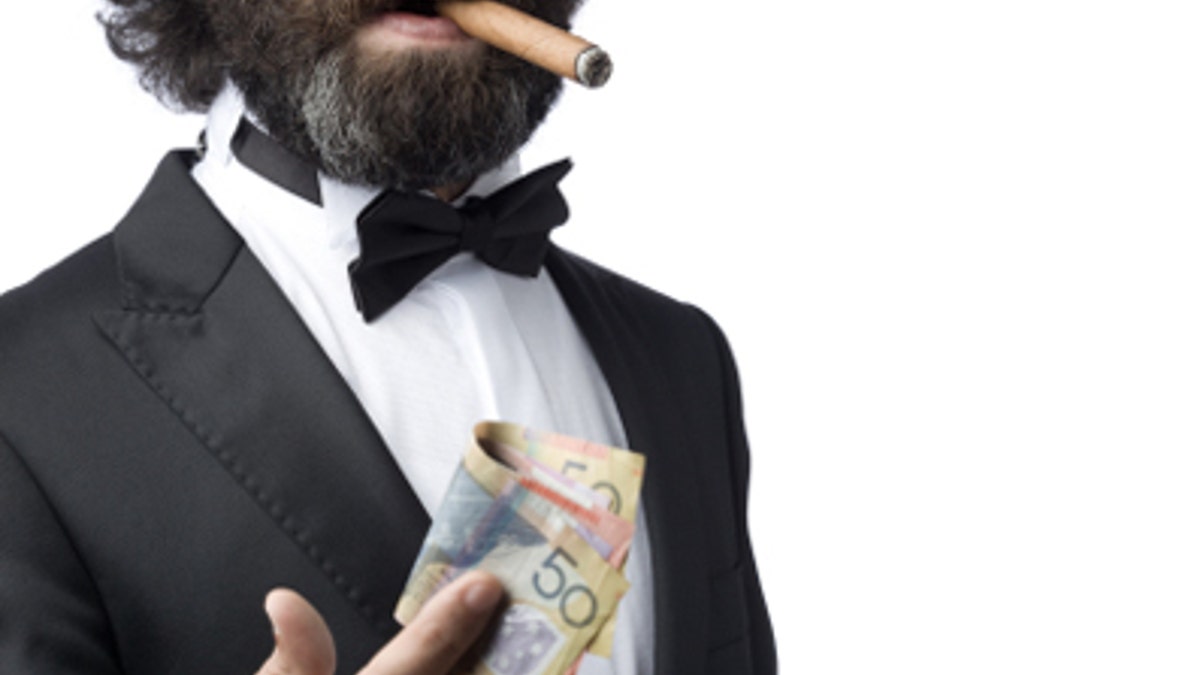
Tipping as we know it today began in Britain during the 18th century, and just as it is now, it was a way of supplementing the wages of relatively poorly paid waitstaff by way of a gratuity for good service. Now, the act of adding a set percentage to your final bill at the end of a meal is almost as automatic as placing a napkin across your lap at the beginning of it.
Tipping is a contentious issue, with people always debating about who to tip, how much to tip, how that tip is distributed among the staff, and when and why it might be acceptable to withhold a tip if you have not had the service you anticipated. In a high-end restaurant, this can be even more of a challenge, as you will interact with far more staff during your evening than you would at a more casual eatery. These staff will be smartly dressed, are more likely to be well trained, and paid more than their itinerant counterparts in cheaper dining spots.
They might be a higher class of server, but they will still expect monetary recognition for their efforts, and when you are looking at that as a percentage of an already sizable bill, it can add quite a bit to your final budget. On the one hand, you do not want to look like a cheapskate, particularly if you plan to return to the restaurant. One the other hand, you don’t want to tip so much that everyone in the place gives you a tearful hug of gratitude as you leave.
The 8th commandment of fine dining: tip right
Below are some guidelines that I hope will help along the way.
As always, do your research. This is particularly useful if you are going to be visiting a restaurant in a foreign clime. Different countries have different conventions when it comes to tipping, and in some places, it might not only be unnecessary, it might even be considered offensive. Countries like Australia, Spain and Japan have a very different take on tipping than the U.S., and it is worth checking online to see what other diners recommend.
The amount you should tip also varies from country to country. My standard in the U.S. is to add 15% to 20% of the final total of the bill, depending on the level of service. Some people give the same percentage but on the amount of the bill before tax has been added. In either case, always round up your gratuity to the nearest dollar.
----------
Also from AskMen.com
----------
Always carry a wedge of cash with you when eating at a higher-end restaurant. I normally carry around $200. There are two reasons I do this. The first is that, after your meal, there may well be a number of people to whom you might want to give a personal tip rather than just adding an amount on to the bill. If you valet park, the attendant will expect a tip; so will the coat check person, and if you have had particularly personal service from the sommelier, it is always good to reward this with a small gratuity of anywhere from $20 to $50, depending on what you spent on wine.
The second reason is that many restaurants now operate on a system where all tips are pooled and shared pro rata among the staff, based on the hours they work. While on the surface this seems fair, many restaurants also withhold a percentage of this fund to cover costs like staff uniforms and staff meals. I often ask my server if the gratuity I leave on the bill will actually go to him. If he tells me it will not, I give him in cash what I would have added and leave a smaller amount on the bill for other staff.
Understand the added fees
Some restaurants will automatically add a percentage “service charge” to your final bill. This is particularly the case in the UK, where it is set at 12.5%, but the system is becoming more and more common elsewhere. The charge can be removed if you feel you have not had a good experience. However, as long as the service has been good, I would never remove the service charge just because I have not enjoyed the food. Why should my server suffer just because the kitchen screwed up?
Finally, remember that tipping is entirely optional and is your way of rewarding good service. Do not feel obliged to tip if you don’t feel it is deserved. However, if service has been poor enough to not deserve a tip, you should bring up your issues with the management long before it gets to the point of asking for the bill.
